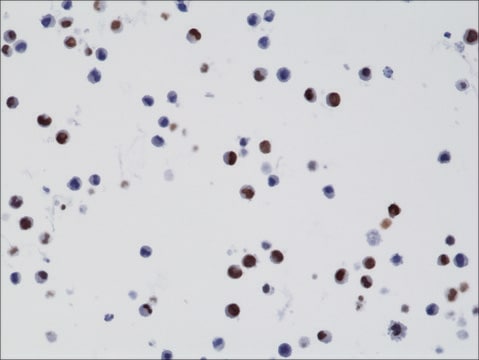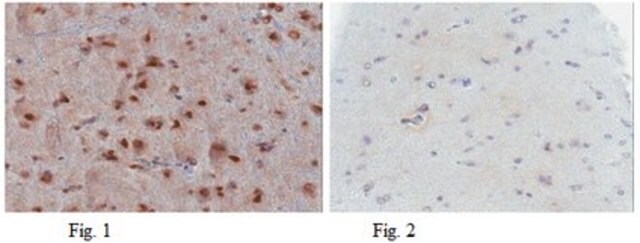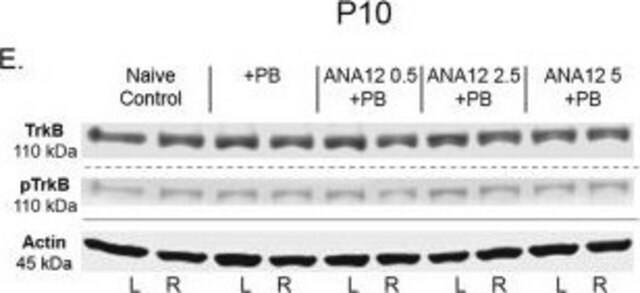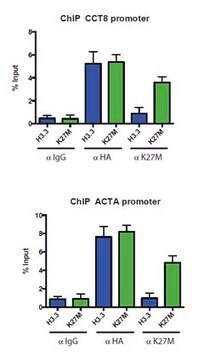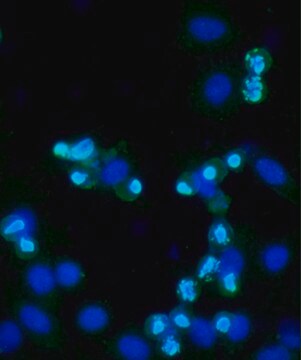P9249
Monoclonal Anti-p53−Biotin antibody produced in mouse
~1 mg/mL, clone DO-1, ascites fluid, buffered aqueous solution
About This Item
Productos recomendados
biological source
mouse
conjugate
biotin conjugate
antibody form
ascites fluid
antibody product type
primary antibodies
clone
DO-1, monoclonal
form
buffered aqueous solution
mol wt
antigen ~53 kDa
species reactivity
human
concentration
~1 mg/mL
technique(s)
flow cytometry: suitable
immunocytochemistry: 5-10 μg/mL using human A431
immunohistochemistry: suitable
immunoprecipitation (IP): suitable
western blot: 0.5-1 μg/mL using human A431 cell extracts
isotype
IgG2a
UniProt accession no.
shipped in
dry ice
storage temp.
−20°C
target post-translational modification
unmodified
Gene Information
human ... TP53(7157)
General description
Immunogen
Application
Biochem/physiol Actions
Physical form
Storage and Stability
For extended storage, freeze in working aliquots.
Repeated freezing and thawing, or storage in “frostfree”freezers, is not recommended. If slight turbidity occurs upon prolonged storage, clarify the solution by centrifugation before use. Working dilution samples should be discarded if not used within 12 hours.
Other Notes
Disclaimer
¿No encuentra el producto adecuado?
Pruebe nuestro Herramienta de selección de productos.
Related product
Storage Class
10 - Combustible liquids
wgk_germany
WGK 3
flash_point_f
Not applicable
flash_point_c
Not applicable
ppe
Eyeshields, Gloves, multi-purpose combination respirator cartridge (US)
Certificados de análisis (COA)
Busque Certificados de análisis (COA) introduciendo el número de lote del producto. Los números de lote se encuentran en la etiqueta del producto después de las palabras «Lot» o «Batch»
¿Ya tiene este producto?
Encuentre la documentación para los productos que ha comprado recientemente en la Biblioteca de documentos.
Artículos
p53 regulates gene expression, cell cycle control and functions as a tumor suppressor. Inactivation of p53 is closely tied to cancer development.
Nuestro equipo de científicos tiene experiencia en todas las áreas de investigación: Ciencias de la vida, Ciencia de los materiales, Síntesis química, Cromatografía, Analítica y muchas otras.
Póngase en contacto con el Servicio técnico
